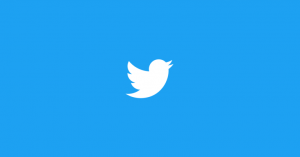With the Taliban taking control of Afghanistan , social media platforms such as Facebook, Twitter, and YouTube have to come up with ways to balance a response against the conservative terrorist-affiliated group now in control of the state apparatus.
According to reports, the Global Internet Forum to Counter Terrorism, to prevent terrorists and violent extremists from exploiting digital platforms, has not taken an official position on how to address the Taliban regime’s communications on social media, leaving the decision to the individual platforms instead.
An official at Access Now, a global digital rights advocacy group, was quoted as saying, “They (the companies) are struggling a bit. I don’t think people were fully ready for this to happen in Afghanistan. So what’s happening is that much more work is having to be done every hour on this.”
The questions social media platforms face are many — should they maintain their user policies to reflect a strict stance against the insurgents, should they let the militant regime operate on social media as any other internationally-recognised government?
Also read: Former Afghan President Ashraf Ghani denies leaving Kabul with large sum of cash
Meanwhile, these social media platforms seem to be taking the no-consideration policy. Facebook and YouTube came on bold with their decision and said that the Taliban are banned from their platforms. On the other hand, Twitter has not banned the Taliban yet but is reportedly cracking down on individual pieces of violent content.
YouTube, now owned by Google, also said that it will terminate Taliban accounts.
Also read: ‘The Outsider’, film on disputes behind construction of 9/11 museum, to screen on Facebook
However, there is some confusion among the social media platforms on how to handle the Taliban. Although Facebook claims that its ban on the Taliban has been in place “for years” under its “dangerous organisations” policy, it appears that the social media giant only deactivated certain Taliban accounts after facing a set of questions from the New York Times.
Also, Facebook’s alleged action against Taliban accounts does not seem to have translated across other platforms owned by the company. WhatsApp, on the other hand, said that it will take action against sanctioned people or organisations using the app, but that would involve identifying who uses the app in the first place.
A statement by a company spokesperson indicated that WhatsApp has not taken any action against some accounts spreading Taliban propaganda since the platform uses end-to-end encryption for its messages.
Later, Facebook stated that it would eventually block Taliban accounts on WhatsApp, since it considers the group to be a terrorist organisation. The platform will be taking the help of Afghanistan experts, native Dari, and Pashto speakers with knowledge of the local context, to help guide policy.






